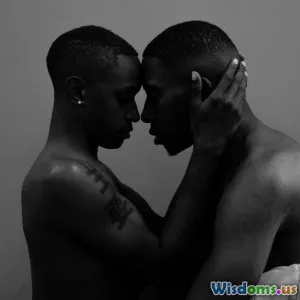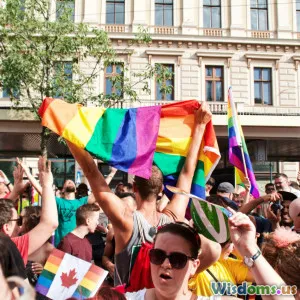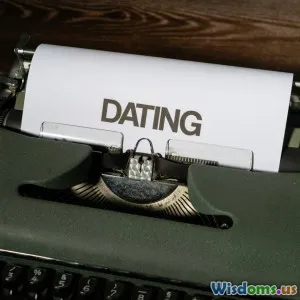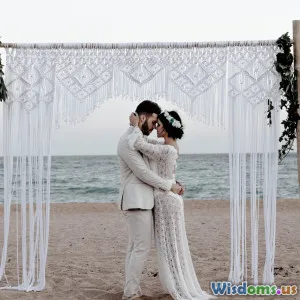
Why Microaggressions Still Hurt LGBTQ Plus Couples Daily
7 min read Explore why microaggressions continue to impact LGBTQ+ couples daily and how awareness can foster empathy and change. (0 Reviews)
Why Microaggressions Still Hurt LGBTQ+ Couples Daily
Introduction
Imagine being told "You don't look like a couple" or facing intrusive questions about your relationship. For many LGBTQ+ couples, these microaggressions — subtle, often unintentional slights — are a frequent reality. While they may seem minor to some, their cumulative effect is deeply damaging, fostering feelings of exclusion and invisibility. This article dives into why microaggressions still hurt LGBTQ+ couples daily by examining their nature, impact, and the urgent need to foster empathy and change.
What Are Microaggressions?
Microaggressions are brief, everyday comments, behaviors, or environmental cues, intentional or not, that communicate hostile, derogatory, or negative messages to marginalized groups.
Dr. Derald Wing Sue, a pioneer in microaggression research, defines them as "subtle, stunning, often automatic, and nonverbal exchanges which are ‘put downs’". For LGBTQ+ couples, these can range from statements doubting their relationship legitimacy to intrusive questions about their identities.
Examples Specific to LGBTQ+ Couples
- Assuming gender roles: Saying “So who’s the man in the relationship?” assigns heteronormative roles that may not apply.
- Invalidating relationships: Remarks like “You’re just experimenting” or “It’s phase” delegitimize the couple’s commitment.
- Confusing pronouns or not respecting chosen names: This can feel distancing and disrespectful.
- Intrusive questions about sexual practices or orientations: These questions place individuals in an unwanted spotlight.
- Avoiding public displays of affection around strangers: Implicitly policing how LGBTQ+ couples express affection.
The Daily Toll on Emotional and Mental Health
Unlike a singular act of discrimination, microaggressions accumulate, creating an ongoing emotional strain. Research published in the Journal of Counseling Psychology highlights that LGBTQ+ individuals subjected to frequent microaggressions experience increased anxiety, depression, and suicidal ideation.
The Experience of Couples:
Sarah and Emily, a lesbian couple from Chicago, share their experience: “We constantly get asked who ‘the guy’ is between us, which feels invalidating. Over time, it made us less comfortable in public and strained our sense of safety.”
Each microaggression chips away at self-esteem and the feeling of belonging, making public spaces and social settings fraught with stress.
Societal Roots: Why Do Microaggressions Persist?
1. Lack of Awareness
Many people are unaware that their questions or comments are microaggressions, often due to limited exposure or education about LGBTQ+ experiences.
2. Entrenched Heteronormativity
Societal systems and cultural norms frequently prioritize heterosexual, monogamous relationships. This makes alternative relationship structures invisible or marginalized.
3. Fear and Discomfort
Sometimes microaggressions stem from discomfort or fear relating to unfamiliar identities. This creates awkward or insensitive interactions.
The Impact on Relationship Dynamics
Microaggressions do not only affect individuals but can also strain couple dynamics:
- Adds Extra Emotional Labor: LGBTQ+ partners often find themselves educating others repeatedly or managing the fallout from insensitive encounters.
- Erodes Relationship Confidence: Questioning by others might seed doubt about societal acceptance and the durability of their relationship.
- Limits Social Inclusion: Couples might avoid gatherings or places where they anticipate discrimination, leading to social isolation.
Research by Dr. David Allison from PLOS One found that microaggressions correlate with decreased relational satisfaction among LGBTQ+ partners, emphasizing this distressing effect.
How Can We Reduce the Harm?
1. Cultivate Genuine Awareness and Education
Understanding microaggressions and recognizing their impact is the first step. Inclusive curricula and diversity training that covers sexual orientation and gender identity can cultivate empathy.
2. Practice Mindful Communication
Pause and reflect before speaking. For example, instead of asking "Who’s the man in the relationship?", consider appreciating the couple without assumptions about roles.
3. Amplify LGBTQ+ Voices
Listening to real experiences and stories helps humanize struggles beyond stereotypes. Platforms for sharing can foster understanding.
4. Normalize Respect for Pronouns and Names
Simple steps like asking and using correct pronouns validate identity and reduce alienation.
5. Advocate for Inclusive Policies and Spaces
Institutional support reinforces societal change, from workplaces to healthcare settings.
Real-World Insights: Change Is Possible
Organizations like GLAAD and The Trevor Project emphasize combating microaggressions as vital for mental health in LGBTQ+ communities.
In workplaces that implemented specific microaggression and inclusivity training, reports of discriminatory experiences dropped significantly, paired with higher employee well-being scores.
Moreover, social media campaigns like #Allyship and #LGBTQInclusion have raised awareness globally, encouraging respectful interaction.
Conclusion
Microaggressions may appear small or inadvertent, but their daily presence inflicts lasting emotional wounds on LGBTQ+ couples. These subtle dismissals reinforce societal exclusion and create ongoing hardships in personal and communal life.
By understanding what microaggressions are, why they persist, and how they impact relationships, we can collectively strive toward a more empathetic, inclusive world. Every respectful word or action counts — and those everyday affirmations can help LGBTQ+ couples feel seen, validated, and loved.
Let us all commit to listening better, thinking deeper, and acting thoughtfully, because love in all its forms deserves nothing less.
Rate the Post
User Reviews
Popular Posts





















